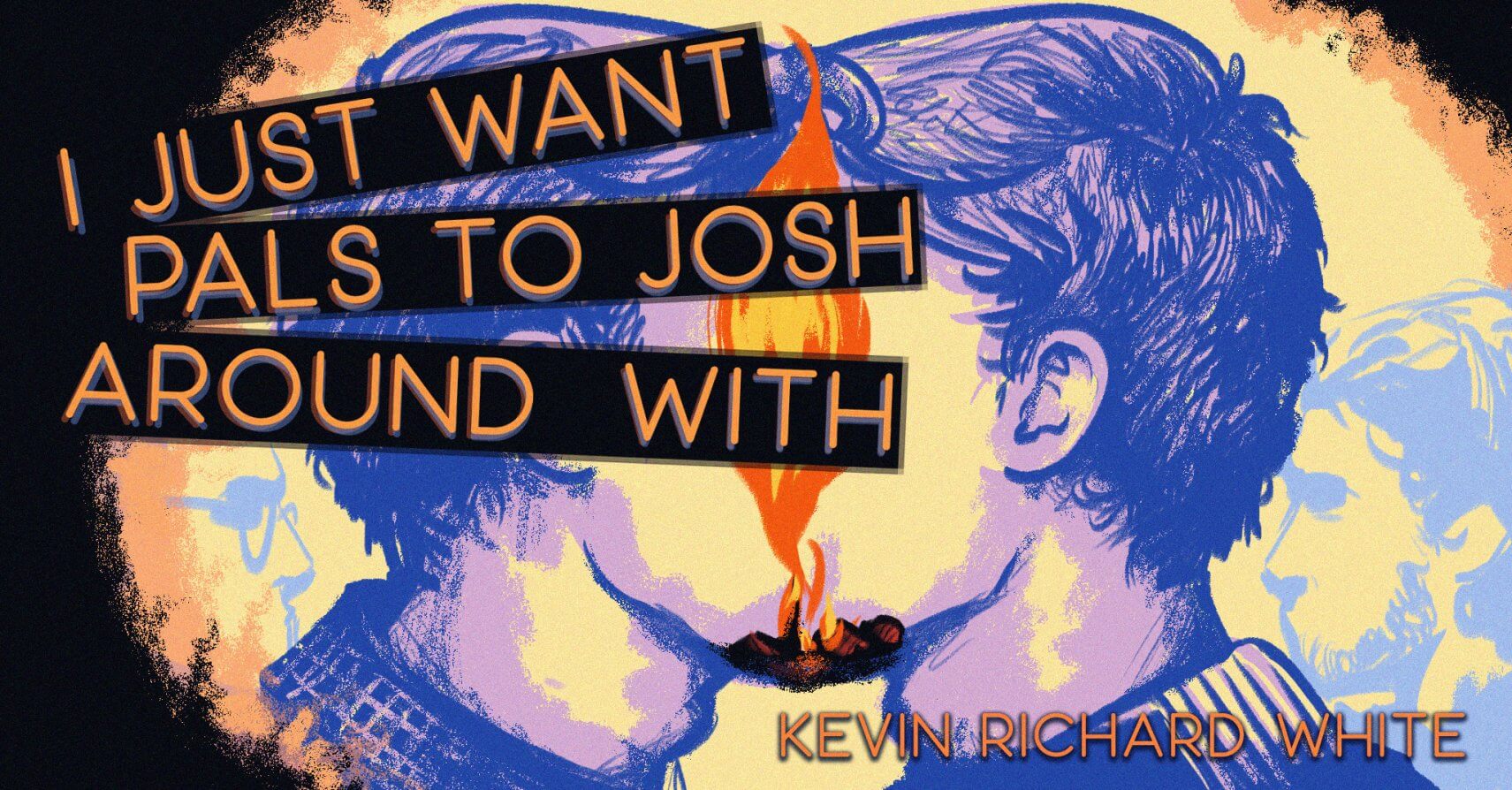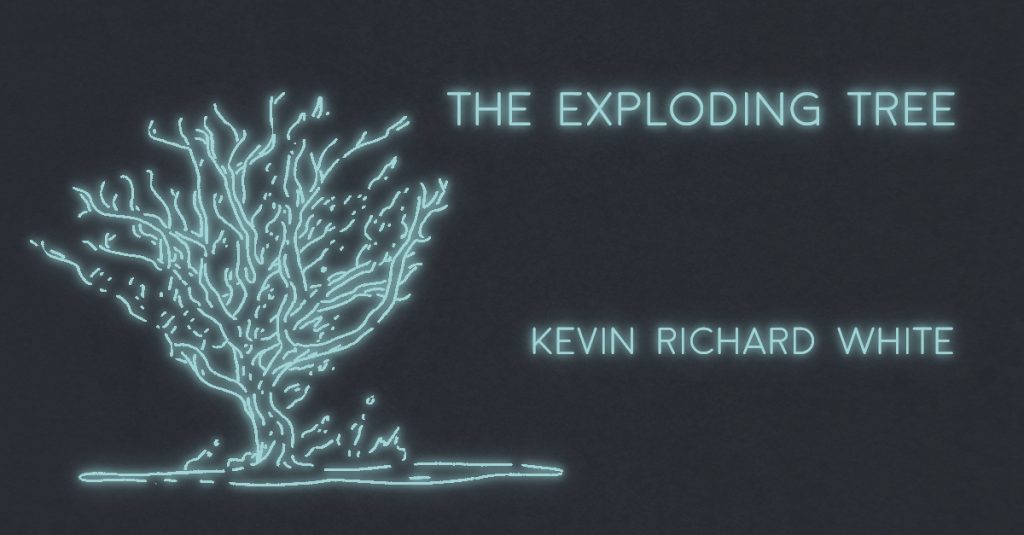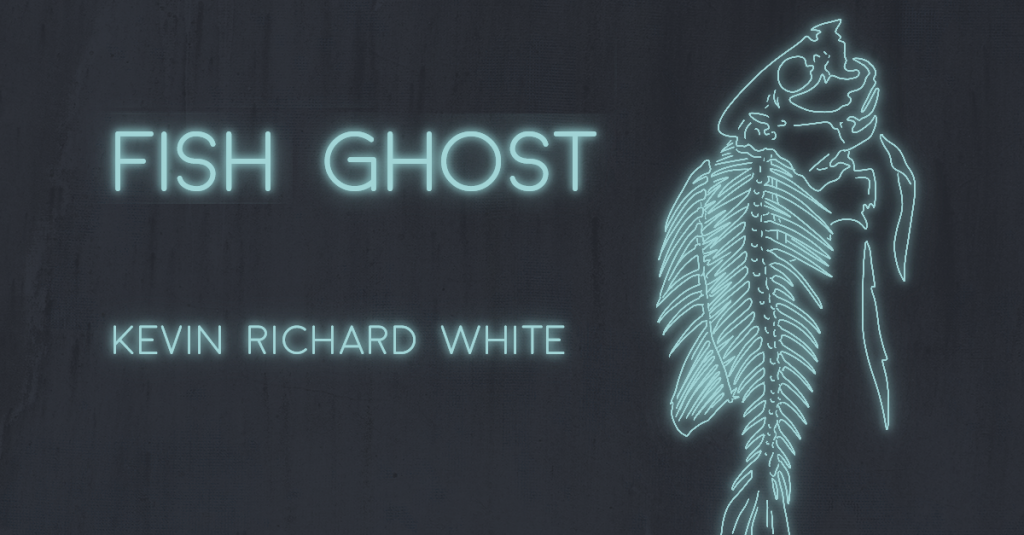
I JUST WANT PALS TO JOSH AROUND WITH by Kevin Richard White
Maybe we discuss how soft our wives’ hands are, how they look in the shower, how they may or may not love us.
Kevin Richard White’s fiction appears in Hobart, Rejection Letters, Lost Balloon, The Molotov Cocktail, Soft Cartel, X-R-A-Y, The Hunger, Hypertext and Grub Street among many others. He lives in Philadelphia.

Maybe we discuss how soft our wives’ hands are, how they look in the shower, how they may or may not love us.

She’s feeding you remains of her meal. Like you’re some animal child. There’s a tattoo of an exploding tree on her back and right shoulder blade: black ink like paint splatter on her smooth skin, roots pulled up, snapped branches, drifting leaves that become new birds. Hair covers it, but not often. One day, you woke up, and it was there. You were angry about it at first, but then you realized you had a lot in common with that tree: You both couldn’t move and had nowhere to go fast. You open your mouth. You want more of the…

My sister spoke of a fish ghost that occupies a nearby river. She raised her voice as if her sentences had a weight. But in reality, she’s timid. “It has bones and fins,” she said, “but it is poor at cutting through the water.” “Amanda,” I said as she swayed, a wind tearing through my hoodie that she always wore. “Something like an urban monster.” Her eyes widened. “Legend, you mean.” “Whatever.” It’s possible she’s correct. There’s always been rumblings from neighbors and lifers that there’s a creature existing in our milieu. Cameras mysteriously break when one gets close to…